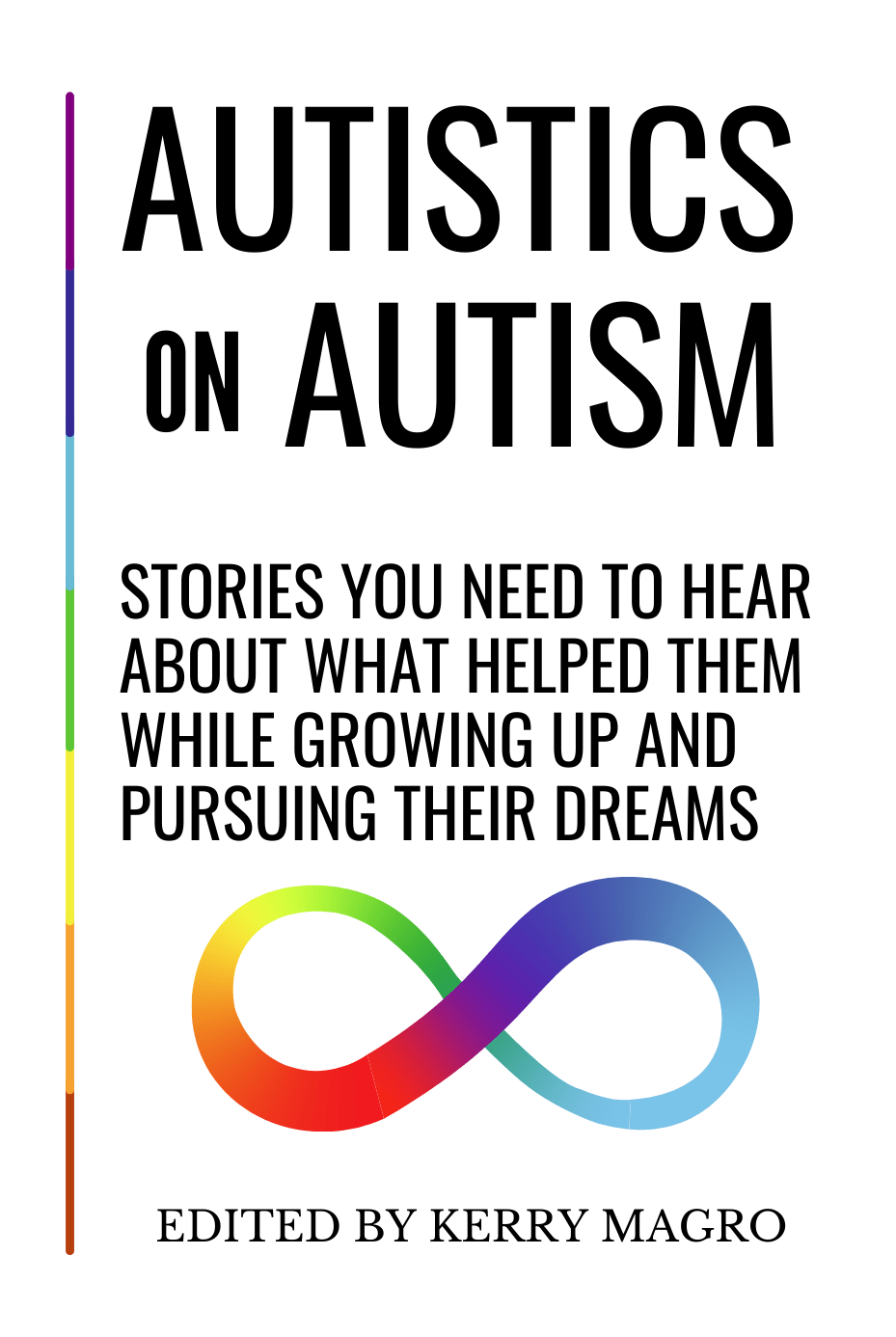This guest post is by Huang, a young woman on the autism spectrum who was diagnosed with autistic disorder at age 11 and has been accepted into California State University Northridge. Huang is applying for the Spring 2022 Making a Difference Autism Scholarship via the nonprofit KFM Making a Difference started by me, Kerry Magro. I was nonverbal till 2.5 and diagnosed with autism at 4 and you can read more about my organization here. Autistics on Autism: Stories You Need to Hear About What Helped Them While Growing Up and Pursuing Their Dreams, our nonprofit’s new book, will be released on March 29, 2022 on Amazon here for our community to enjoy featuring the stories of 100 autistic adults.
I am a junior international student from Hong Kong at California State University Northridge, majoring in English Subject Matter. I believe literature and writing can highlight important topics and help catalyze positive action. During Spring 2021, I was also a research assistant for IFiT-M, a research study, and fitness program at my university investigating the effects of peer-mentored physical activity intervention with a mindfulness component on autistic college students. I was interested in helping with this research study as it targets students like myself with a diagnosis of autism spectrum disorder.
While I was officially diagnosed with autism at the age of eleven, I had lived for almost a year in Massachusetts due to my father going there for research work, I was identified with speech and language delay and difficulties at an early age, allowing me to receive therapies. I received speech therapy from approximately the age of four until the age of fifteen, as well as occupational therapy for a few years to improve my motor skills.
During secondary school, I received learning support in secondary school through the form of educational assistants supporting me in classes and social skills, study skills, and life skills support lessons. Having received additional support makes me realize the importance of appropriate support and accommodations for all children with an autism spectrum disorder or other disabilities, and motivates me to help ensure other students get the care and education they need.
Growing up as a child and teen, challenges I faced related to autism included difficulty knowing what to do or say in certain social situations, difficulty initiating requests, difficulty knowing when and how to clarify things, difficulty advocating for myself, and difficulty being understood by others due to speech and language difficulties.
While therapies to help a child with autism and speech and language difficulties are important and can help them develop important skills, there also needs to be appropriate accommodations for areas in which a child still needs support and is still developing skills. For example, a child who has difficulty with speech may be able to write or use another communication method to express their thoughts. There should also be a structure that allows a child who has difficulty approaching certain social situations or to initiate requests to do these tasks they need support with.
At the age of fifteen, I faced some additional challenges that showed me the importance of receiving appropriate support at the right time. I was diagnosed with bipolar disorder, and was hospitalized in both a child and adolescent psychiatric ward and an adult psychiatric ward for two months in total with a diagnosis of “mania with psychotic features.”
Although I was not diagnosed with a mental illness until my teen years, I had struggled with poor mental health before my teen years. A few times, a hospital school teacher came to my ward to teach me, allowing me some continuation of education. Having benefited from the hospital school teacher’s time and lessons motivates me to support children and youth through challenges, just as I was supported through challenges.
During the academic year in which I was psychiatrically hospitalized, I missed six months of school for medical reasons, so I repeated a grade. I was fortunate to benefit from pre-employment training for people with disabilities during some of the missed school months, allowing me some stability and continuity of skills training during a challenging period.
Having missed six months of school for medical reasons also makes me consider the needs of hospitalized or homebound students. For example, teachers need to consider how to help ensure a successful pre-transition to school for previously hospitalized or homebound students, which would help provide equal opportunities to all students regardless of the challenges they face. After my psychiatric hospitalization, a psychiatric nurse visited me at my home regularly for a few years. This helped me feel connected to the community and manage my mental health challenges.
Mental health services to prevent and treat mental health difficulties are crucial for everyone, including autistic people, as mental health is important and impacts everyone including autistic people. Therefore, services for autistic people must consider mental health needs, and mental health services must consider the needs of autistic people.
While repeating a grade, I struggled with writing in English class. According to my English teacher, from looking at my previous English writing the quality of my writing seemed to have regressed. The grade I repeated was also the grade in which I completed my IGCSE (International General Certificate of Secondary Education)/GCSE (General Certificate of Secondary Education) exams. While repeating the grade, for my mock IGCSE/GCSE exams (with an A* (highest grade) – G (lowest grade) grading scale), I got a C for one subject and below Cs for all other subjects, including two Fs and two Gs.
However, with increased accommodations for my official IGCSE/GCSE exams and the calculation of coursework into my official results, my official IGCSE/GCSE results were one A, two Bs, and 4 Cs. I was very happy with the improvement in my results. While I got an F for my mock IGCSE English Literature exam and a G for my mock IGCSE English Language exam, officially I got an A for IGCSE English Language and a B for IGCSE English Literature.
My experience repeating a grade taught me that even when one faces significant challenges in life, one can choose to persevere in life while acknowledging one’s challenges and that a setback in life does not necessarily have to set one back forever. This experience would also help me empathize with children and youth regarding the experiences they face.
In the future, I plan to work with children and youth, including those with autism spectrum disorder or other disabilities, to help ensure that all children and youth get the care and services they need and deserve.
Follow my journey on Facebook, my Facebook Fan Page, Tiktok, Youtube & Instagram,
My name is Kerry Magro, a professional speaker and best-selling author who is also on the autism spectrum that started the nonprofit KFM Making a Difference in 2011 to help students with autism receive scholarship aid to pursue post-secondary education. Help support me so I can continue to help students with autism go to college by making a tax-deductible donation to our nonprofit here.
Autistics on Autism: Stories You Need to Hear About What Helped Them While Growing Up and Pursuing Their Dreams, will be released on March 29, 2022 on Amazon here for our community to enjoy featuring the stories of 100 autistic adults. 100% of the proceeds from this book will go back to our nonprofit to support initiatives like our autism scholarship program. In addition, this autistic adult’s essay you just read will be featured in a future volume of this book as we plan on making this into a series of books on autistic adults.















